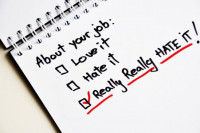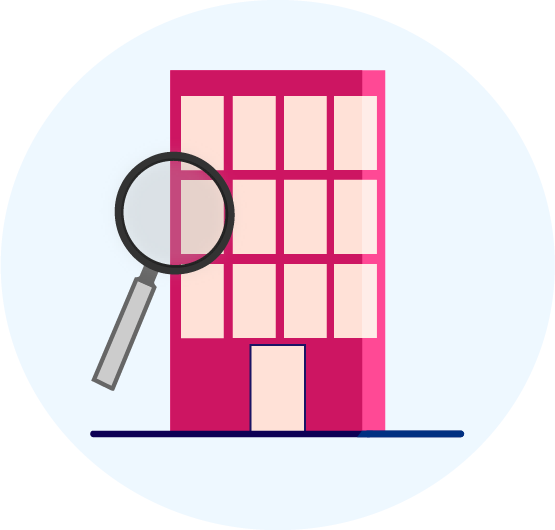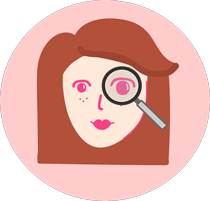
If you ever catch a tram out of the city around 5-6pm on a weekday, what you're likely to see is a large number of tired office employees shuffled back from work. Their faces are gloomed; many have dark circles under their eyes and a blank stare, waiting patiently to get home. The ones that have managed to secure a seat have their smart devices out and are staring intently at the screen – usually working.
The development of mobile technologies over the last decade has brought us to a place where we can check our emails, answer phone calls, reply to messages and queries virtually from any location. For many of us our workday no longer ends when we shut down our computer, push the chair under our desk and close the office door – we continue to work and it’s as though our work hours have been extended to around the clock.
A well-known Australian psychologist and social commentator Sabina Read notes that these are worthwhile and important issues to discuss, and that “there's no doubt technology impacts us all in helpful and unhelpful ways.”
“24/7 modern technology forces demands on our attention which impedes our short-term memory and can overload our cognitive functioning potentially making us more vulnerable to worry and anxiety, which in turn can affect our wellbeing, relationships, and productivity in both professional and personal domains of life.”
The recent research done by British psychologists Zoe Zoupanou and Mark Cropley also shows that “the inability to switch-off from work, conceptualised as ‘work-related’ rumination, has been associated with a number of negative health issues including increased risk of cardiovascular disease, fatigue, and sleeping problems.”
So if it were to come to this, who would have to be held responsible? Is it the employer that puts the stress into the work? Or is it the employee who fails to manage their time to have enough rest?
“The short answer is that both employers and employees have duties under work health and safety laws,” comments a spokesperson from Safe Work Australia.
“New technologies are changing the way work is undertaken in Australia. These bring new risks, but also new opportunities to improve work health and safety. New technologies can allow more flexible work practices such as working from home that provides benefits to both employers and workers.”
“Employers (or persons conducting a business or undertaking) have the primary duty to ensure, so far as is reasonably practicable, the health and safety of workers while the workers are at work in the business or undertaking. This includes managing risks and implementing safe systems of work, for example procedures regarding the use of mobile technologies, working hours, working from home, etc.”
“Workers have a duty to take reasonable care for their own health and safety and this includes following any reasonable instructions, policies or procedures relating to health and safety provided by their employer.”
It is important to note that better that trying to find someone to blame for the stress and fatigue, we should step back and try to prevent those issues from happening in the first place. Safe Work Australia provides guiding materials to help employees manage their time and work load.
We also asked Sabina Read to share a few tips on how to avoid stress and ‘switch-off’.
“Try to disconnect temporarily and plug into yourself, your relationships and the world around you,” she says.
Read also suggests using a new app called “BRB”, which allows the users to send personalised automated messages to let people know that they are taking a ‘guilt-free digital break’ and won’t be responding immediately.
It is amazing how modern day technology has affected our lives. We are now living in a world where we can be reached any time and anywhere. The fact that this technology has evolved so fast meant that many people haven’t had enough time to adjust and are now struggling in this world of endless information overload. However, it is really up to us to decide where we draw the line between life and technology.
More tips from Sabina:

Sabina provides other tips on how to get your mind out of the digital domain and get back to enjoying real life. Here are a few tips from her, which could dramatically improve your after-work life and relieve you of unnecessary stress:
- Walk – any exercise is a great circuit breaker, but walking is underrated as a simple stress reliever
- Touch - affection lowers stress hormone cortisol; and also releases oxytocin
- Read – reading pulls you out of your busy and frantic world and can introduce you to a different reality (but try to read words on paper rather than a back-lit electrical screen device!)
- Explore - nature and the outdoor world
And if you need a real eye-opener - write your own eulogy! Few people write that they wish they had responded more promptly to work emails over the week-end!!
Help draw a digital line in the sand by deciding where in your life will remain technology free zones:
- In bed (whatever you’re doing there!)
- At meal time (try talking to people instead of photographing your meal!)
- On the toilet (enjoy the break and solitude)
- Socialising (there's no point having 400 on-line friends if you don't talk to the friends you see face-to-face)
- In nature
- At sporting events (watch the game not your screen)
Finally, technology usage is contagious, so consider the impact of your behaviour on others around you. When you pick up your device to respond to an email or text, colleagues, friends, children, and partners will often feel compelled to do the same.
Back





